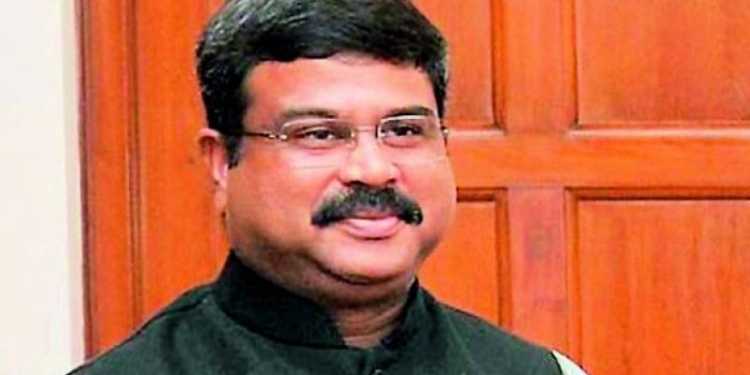Dharmendra Pradhan is one of the most shrewd executives in the country. As Minister of Petroleum and Natural Gas, he has given some of the most innovative and out of the box solutions to long-held problems of India. Just a few months after joining the ministry, he took the bold decision to link the petroleum prices to the international market. He then came up with the masterstroke of direct benefit transfer of LPG subsidies, which saved billions of dollars of government money. The Pradhan Mantri Ujjwala scheme launched by his ministry to provide 5 crore women living Below Poverty Line (BPL) is among the most appreciated decisions by the Modi government among the nation’s poor. Since the rise in petroleum prices over the last few months has created mayhem in the country, he came up with another brilliant idea to solve this problem. To counter the mafiagiri of OPEC in the oil market, he has proposed to form an “oil buyer’s club” with China, Japan and other major oil importing countries in Asia.
The Organization of the Petroleum Exporting Countries (OPEC) is an international organization of 14 oil exporting countries led by Saudi Arabia which decides the amount of oil to be produced and therefore the price of the oil in the international market. The 14 OPEC countries ( Algeria, Angola, Ecuador, Equatorial Guinea, Gabon, Iran, Iraq, Kuwait, Libya, Nigeria, Qatar, Saudi Arabia, United Arab Emirates, and Venezuela, ) account for an estimated 44 percent of global oil production and 73 percent of the world’s “proven” oil reserves, which gives OPEC a major leverage on global oil prices. The OPEC mafia manipulates the market prices of oil according to its will by decreasing or increasing production. Recent production cuts by OPEC have led to international oil prices hitting a four year high last month that forced a Rs 3.8 per liter hike in petrol and Rs 3.38 a liter increase in diesel prices. Thus by creating a counter-alliance of oil importing nations, these countries could pressure the OPEC to maintain a standard supply and negotiate the petroleum price.
The “balance of power” between the supplier and the customer should be maintained, otherwise the groups of suppliers will create a monopoly in the market and manipulate the price of the product as per their will. Sanjiv Singh, chairman of IOC, the largest refiner and retailer of oil in India met with Wang Yilin, Chairman of China National Petroleum Corp (CNPC), the largest petroleum company of China and discussed to facilitate more US crude oil to come to Asia. This will combat the dominance of OPEC, which supplies about 60 percent of India’s oil needs. There is also a proposal that Indian oil companies directly purchase equity crude directly from Chinese companies. Many Chinese companies have a major stake in global oil and gas fields, and if India purchases equity crude from them then it will not have to face market volatility due to spot market purchase.
Together, India and China accounted for 17 percent of global oil consumption in 2017 and will fuel half of the global demand over the next five years. The West Asian OPEC members also charge ‘Asia Premium’ (higher price for shipments to Asian buyers) which is also a reason for discontent among Asian oil importing countries. According to Prof Yoshiki Ogawa of Japan, the Asian Premium annually costs somewhere around $5-10 billion for Asian importers. India had earlier tried to unite the oil importing countries two times during the UPA era but nothing fruitful came out of those meetings. Now with the master strategist Dharmendra Pradhan at the helm of affairs, we could expect a positive result from the ‘oil buyer’s club’, which will help the country to save money on oil imports. Oil import is a major problem for India, with most of the foreign reserves expended on it.

























